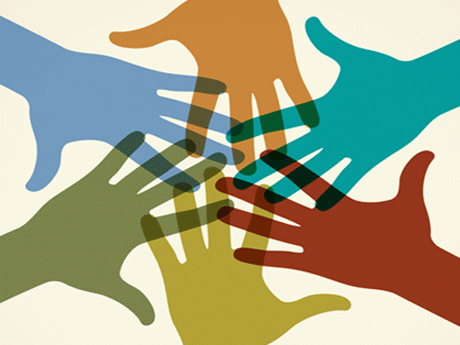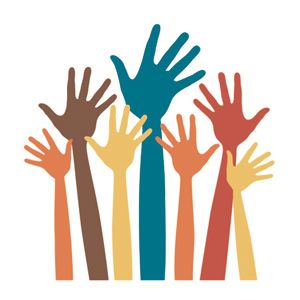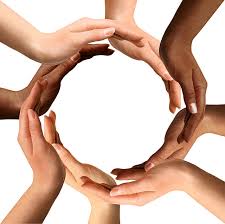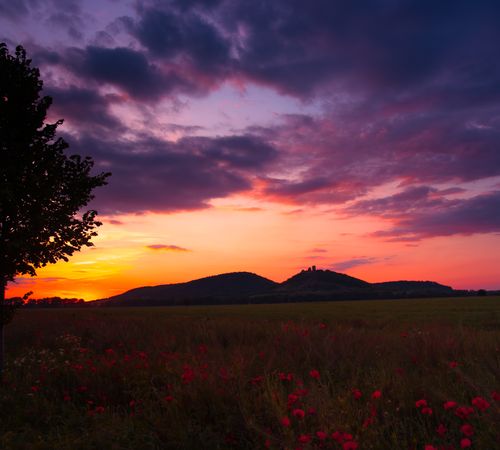
What follows is an incomplete version of a speech I delivered at the Rochester YWCA – Person 2 Person Graduation Dinner on June 21, 2016. I am posting it because a number of people asked me for the full transcript following the event. Note: Much was added extemporaneously (probably the best parts). I have attempted to capture the heart of what was added in this written version. However, I am sure that some elements are missing. My apologies for that!
I’d like to start by sharing with you that in learning about the Person 2 Person program, I was prompted to think back to what happened when I first began seriously exploring race issues. I was in a doctoral program at Pacifica Graduate Institute, and I decided to investigate issues of whiteness as part of my dissertation. Newly aware of the pernicious effects of whiteness and its social conditioning, and well-meaning, but rather confused, I was hoping that the research process would help me figure out how I was supposed to live as a white person.
As part of the research, I sought out pairs of individuals to interview, each pair consisting of one person of color and one white person. The pair needed to have been friends or colleagues for at least a decade, and both needed to be dedicated to community work. My hypothesis was that white people who were able to maintain relationships across race with people of color invested in community issues would likely have confronted issues of race, and their whiteness specifically. I was hoping to glean wisdom from their stories. As I had already come face to face with my social conditioning and felt a lot of shame, I was seeking models who could show me a path forward that was healthy and informed by racial justice.

The title of the dissertation was “Friends, Teachers, Witnesses, Healers: Whiteness and Cross Race Friendship.” I recall that title now because it seems to me that the Person 2 Person program attempts to do something implied in that dissertation title. It seeks to break down the divide between people in the same way that those I interviewed had broken through the walls of ignorance that result from seeing people as “the other.” I believe that this program recognizes that building personal, ongoing relationships – essentially friendships – allows people to teach one another, witness each others’ lives, and that this process supports something of a healing process to occur.
I think this is how many of us white folks enter the road toward investment in racial justice. Our entry is usually deeply personal and inspired by ongoing relationships with people of color. We learn that our way of perceiving the world is affected by all our previous experiences, much of which has been beyond our control or intention.
I have to name a challenge with this dynamic, however. Friendships across race are great. There is nothing wrong with them being learning experiences, and there are plenty of people of color who are willing to be guiding forces in the lives of white people. However, this cannot be the expectation. It is essential that white people take up the burden of educating ourselves and each other.
All these myriad experiences shape how we interpret the world. It affects our large-scale societal analyses, our ideas about how the world operates as it does and why. Why do people live where they do? Why does the education system function as it does? Are the police there to help you or hurt you? What about this country is or is not great?
Our entire set of personal life experiences also shape our interpretations of the most minor of interactions – why that person did what they did, and whether or not it makes sense to us.

Programs like Person 2 Person that provide the opportunity to really get to know another person’s life deeply enough to understand the fullness of their life experiences, allow us to learn that our beliefs are shaped by the degree to which we fit in to socially dominant groups, and that there are other truths to be explored. There are other ways to interpret the world that are valid, and maybe, other perspectives that hold even more truth than our own.
It seems, then, that a key on this road is learning that an important task is to recognize that our perception of the world needs to expand – that on some level, we can’t trust our initial thoughts, interpretations, or beliefs. They’re just not complete. The Person 2 Person program appears to build on this understanding, that in truly seeing one another, we witness not only another person, but we have the opportunity to witness ourselves. In doing so, we can begin to recognize how we need to heal from our societal conditioning.
It was this thread of realization that led me to move beyond that original, rather bulky dissertation title “Friends, Teachers, Witnesses, Healers” and focus on Witnessing Whiteness. I highlighted the witnessing part because until we develop our capacity to notice and respond to an expanded perception, we cannot begin to heal from our country’s racial trauma.
I trust that those who are celebrating the completion of this year’s program can also attest to that need to expand one’s perspective. Personally, it led me to identify a set of elements that I determined need to be part of any effort to build an ongoing and continuously developing anti-racist practice. I began sharing those ideas with other white people.
I’ve been focusing on working with white people because it’s what people of color have asked me to do. Back when I originally began this journey, I had surrounded myself with people of color. I was comfortable there, comfortable being mad at white people and feeling superior to others who didn’t know what I now knew. But a black woman took me aside, and probably not for the first time, said. “You know, we like you and all. But, we got this. We know what we need to do for our community. What we need for you to do is go work with the white folks. Work with them so that when our kids get out there and try to get a job, that doors will be open for them.”
I probably had been given that message multiple times before, but I finally heard it, finally was ready to confront my own fears about having these conversations with white people. The reason this is so important is because white people do need to take on these conversations. And there are three things I’d like to raise up beyond the need to reduce the burden that’s often placed on people of color. They are these. First, white people talking to white people helps us strengthen and clarify our voice. It gives us much needed practice that can help us become more effective. Second, it helps develop leadership, a level of confidence that allows white people to truly show up and stand strong in an anti-racist position. We need that too in order to stay in the struggle. Third, there are still a majority of white people in this country, and we need as many white people actively working within their own communities as possible in order to keep pushing us forward.
Now, back to the message I was trying to convey to these white folks. The framework included first, building knowledge. We need to know more about our racist history…period. Too few of us have a real sense of the absolute horror that fills our historical record. Too much has been white-washed, and this continues to pour salt in open wounds. Second, we need to build skills that allow us to raise issues with others in strategic ways. This includes different ways to approach conversations with those we are trying to influence. Third, we need to build the capacity to use our knowledge and skills. This is a less commonly discussed element that I should probably explain. The difference between “having skills” and “having capacity” is that all the knowledge and skills in the world won’t be implemented well if, in the moment of challenge, we freeze, or we lash out, or we run and hide.
Capacity-building means working on our own emotional responsiveness so that we can engage with others in productive ways. It’s this area of work that allows white people to avoid falling into the common traps bred from shame, guilt, anxiety, anger, defensiveness, and fear. This is the part where we have to get to know our white selves well enough to identify our personal triggers, which so often derail us from participating usefully in racial justice efforts.
The fourth element is building community. We need one other to keep us moving forward. The benefit of having a group that 1) supports us when we admit to a failed moment and 2) congratulates us when we have success, cannot be overstated. We are in a time with a tremendous amount of backlash against the historic progress that has been made. From the moment Obama was elected, there has been a movement to undermine him every step of the way. This push back appears only to be increasing, and admittedly, it is deeply disheartening.
And, I’m also thrilled that white people across the country are increasingly coming together through a national network called Showing Up for Racial Justice (SURJ). It’s spelled S – U – R – J, and I encourage you to look it up if you’re not aware of it yet. There are over a hundred SURJ chapters across the nation, white people coming together to build coalitions and work in solidarity with people of color led organizations. I’m inviting all the white folks in the room to please join us in SURJ’s quest to have over 7 million white members in the next few years. We have much to do.
I am sharing all of this with you tonight because this is where I ended up after going through a less formal process, but one that mirrors the goals of the programs offered by the YWCA. What still took years for me to realize, however, was that my framework, those four elements I just described, is NOT complete. Something missing was a more concentrated focus on the systemic nature of racism and the need to actively and consciously participate in its dismantling. I now realize that my work is not complete unless I articulate how the personal healing, witnessing approach must result in increased action to address the systematic nature of racial oppression.
And yet, I’m still a person steeped in the psychological approach, one that tries to open critical conversations. The difference is that my current recognition is that the goal must be to increase our ability to come together and take action that addresses policies, institutions, and systems.
In that vein, I’d like to tell you a bit about my most recent work. Several years ago I began to pay more attention to an area of concern that I didn’t see addressed anywhere. It involved the confusion and tension I experienced trying to engage with both my spiritual development and racial identity work simultaneously.
I noticed that the issue of racial justice was never raised at my spiritual community’s events. There was much beauty, love, and shared appreciation across race, but the community operated as though we’d already achieved the sort of post-racial life that those invested in colorblindness believe is possible if we would simply stop talking about race. At these events, I knew something was missing. I knew that the path of racial awareness was a meaningful part of a healing process that many of us need.
On the other hand, when I attended conferences and political action events oriented exclusively toward racial justice and other social issues, oftentimes there were harsh statements made about those dedicated to issues of personal growth and healing. While I understood the call for action, and recognize that this is where I myself have needed to improve in my own practice, the critiques seemed so one-sided that none of my spiritually-oriented friends would ever see these environments as spaces where anything transformative or healing could occur.
For years, I stayed silent about this, going back and forth between my two communities, feeling that each was missing something essential for its overall success and well-being — that each had a key that the other needed. I stayed silent partly because I was scared that raising these issues would be interpreted as me not being invested enough in racial justice, that I’d be criticized for being too soft, too steeped in my own privilege, for caring too much about protecting white people’s feelings. But, that’s not the cause of my concern.
What concerned me is that the people in my spiritual community should be obvious candidates to join racial justice efforts. Our country’s history is replete with social justice movements working in tandem with faith traditions. I wanted to get a handle on why so many churches, synagogues, or other traditions’ practitioners seem to be sitting on the sidelines. And, as we see more and more people naming themselves as “spiritual, but not religious”, where is the outreach to this growing group of people? Who is articulating a connecting link between our spiritual development and work toward racial justice?
For me, this connection is key. My spiritual growth as a human being and my soul’s healing process requires me to attend to my racial identity. I am both a transcendent being with a spirit that connects to all beings, and there is something meaningful about me being born into a white body. I have work to do in order to heal my ancestral lineage. Just as my spiritual development requires me to focus on accepting and healing myself, I must also recognize where my consciousness needs expansion. I have to know how my very sense of self is impacted by racial privilege. And just as I know I need to heal from the disconnections and individualism inherent in our modern culture, I need to be honest when observing that individualism and division often penetrates the way many of us approach our spiritual practices.
Each of these connections, although seemingly abstract and tied to a metaphysical understanding of self has practical ramifications for day-to-day actions. They affect how and how much we attend to racial justice.
This is where my primary concern arises. I think it behooves those of us who care about racial justice to find a “both/and” position where these various perspectives are valued in order to 1) successfully influence spiritually-oriented people, particularly white people, to pay attention to race and 2) to influence racial justice-oriented people to give space and time to the inner work, the personal growth necessary to heal from racial trauma, which might allow for a more transformative process to occur.
At the core, I’m suggesting that living into the Beloved Community many of us strive to create, the one where systemic injustice is actually dismantled, depends more on love than on anger, more on folks coming together in a spirit of healing than in joining a fight that refuses to self-reflect. And, that we would do well to take a less judgmental view of all sides in order to find the connecting place where we can work together more sustainably.
Our capacity to do this depends upon us accepting that there are plenty of ways to do this work, and that whoever we are, using whatever energy we have, each of our contributions are valuable — even if it’s in ways that we don’t fully understand. For those of you who have participated in the YWCA programs this year, your contributions are valuable. The pebbles we each drop into our collective pond extend out beyond ourselves. I am thankful for your dedication to dialogue, learning, growth, and I appreciate that you are partners on this healing journey. Thank you for allowing me to share these thoughts with you tonight, and I hope we will meet again on this shared path headed toward justice.


